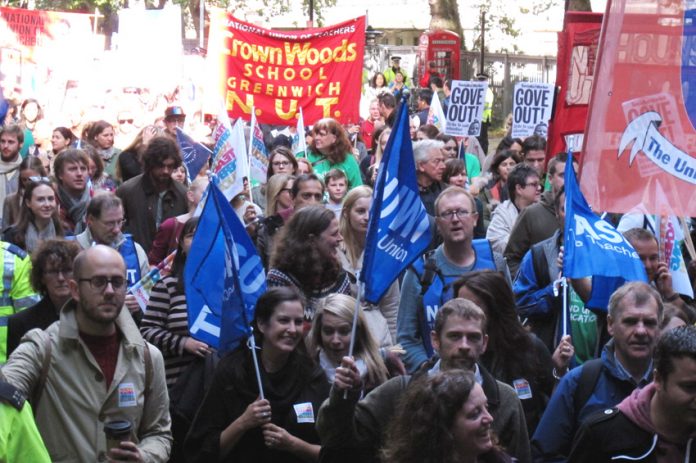
EMPLOYEES across the UK worked a record amount of unpaid overtime last year, with over 5.4 million workers putting in around £640m worth of unpaid hours every week, revealed the TUC yesterday to mark its annual Work Your Proper Hours Day.
The TUC’s analysis of official figures shows that the number of people regularly doing unpaid hours at work increased by 331,000 last year to 5.42m, the biggest annual rise since comparable records began in 1998.
The proportion of people doing unpaid overtime is at its highest-ever level (21.2 per cent of the UK workforce), while the average amount of unpaid overtime has also reached a record high of 7 hours 48 minutes a week.
Employees across the UK are now putting in around £640m worth of unpaid hours every week, or £33bn a year.
The TUC believes that while the rise in the amount of unpaid overtime is partly due to there being more people in work (the number of employees rose by 351,000 over the last year), the likelihood of someone having to work extra hours for free is also increasing.
This suggests that people are being put under increasing pressure to do extra hours at work often without getting paid for them.
Work Your Proper Hours Day took place yesterday because it is the first day of the year that those doing unpaid hours effectively start to get paid for the work they do over the course of the year.
To mark it, the TUC called on staff to take a proper lunch break and leave work on time. Managers were also encouraged to lead by example and encourage their staff to work their proper hours.
London is the capital of unpaid overtime, with 900,000 workers across the city regularly putting in over eight hours of unpaid overtime every week – nearly a fifth of all unpaid hours worked across the UK.
Workers in education are the group most likely to do unpaid overtime (37.7 per cent), followed by those in professional, scientific and technical activities (33.3 per cent).
People in their early 40s are the most likely to do unpaid overtime (26.8 per cent), followed by those in their late 40s (25.5 per cent) and late 30s (25.3 per cent).
TUC general secretary Frances O Grady said: ‘The British workforce is often unfairly portrayed as a nation of skivers and shirkers. But the reality is exactly the opposite.
‘Staff across Britain work among the longest hours in Europe – and are not even paid for much of the extra time they put in.
‘Staff don’t mind doing a few additional hours during busy periods, but too many employers take this goodwill for granted and forget to thank their staff. Further problems arise when those occasional extra hours become the norm, and staff become over-worked and under-paid.
‘If there really is much too much work to go round, employers might want to consider taking on new staff. There are 2.3 million unemployed people across the UK who would be glad of the chance.’